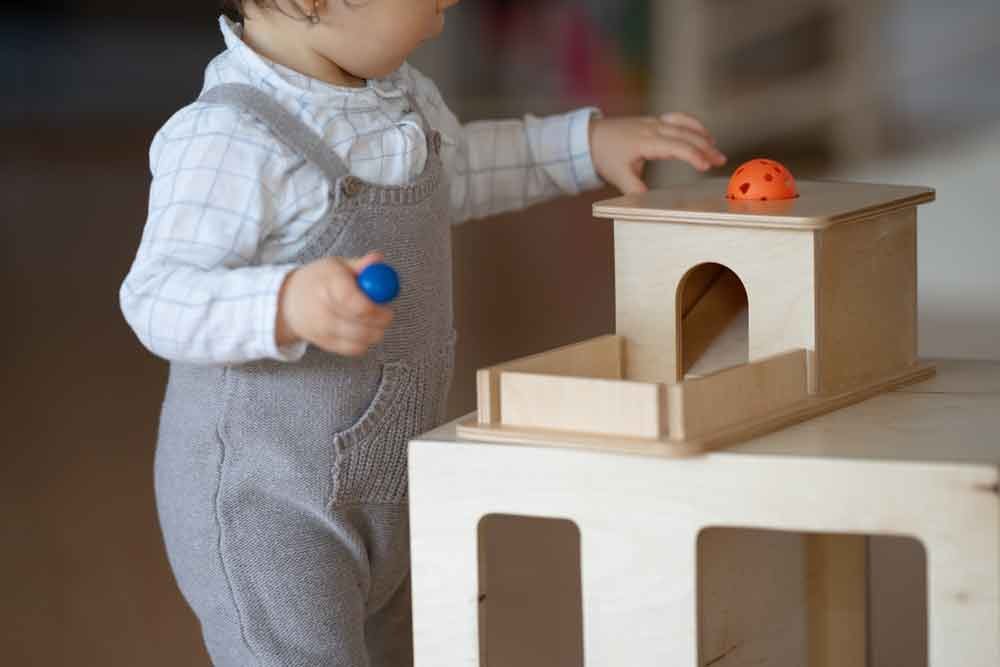Fun Learning Activities for Home
As parents, we want to nurture our children’s growth and abilities from the start. Playing games or reading stories are great ways to bond. But did you know that everyday tasks also build important skills? Practical life activities provide learning opportunities at home.
Here at Children’s Developmental Services (CDS), we offer pediatric therapies and interventional programs to foster development. Yet simple, real-world responsibilities make a big difference. From fine motor work to independence, practical life skills boost confidence and ability at all ages.
Skill-Building By Age
Start where your child is at. Tailor practical life activities to their current milestones.
Infants – Place safe objects within reach for grasping, dropping, and scooping. Encourage holding their bottle or spoon. Provide balls or soft blocks for squeezing and throwing.
Toddlers – Let them “help” with laundry by handing you items. Set out a workbench with nuts, bolts, and tools. Provide pots and utensils for sensory play. Teach self-care like handwashing or drinking from a cup.
Preschoolers – Get them involved in cooking, setting tables, or making their bed. Sort coins by size or buttons by color. Introduce personal hygiene like tooth brushing. Transfer liquids between pitchers using a baster. Let them get messy with hands-on arts and crafts projects.
The real-world context makes practical life activities meaningful. Children gain independence, focus, fine motor control, and problem-solving skills. Tasks build their capabilities today while preparing them for “grown up” responsibilities tomorrow.
Activity Categories
Break down practical life skills by area. Create a rich environment for your child to explore:
Sensory – Finger painting. Sand table. Playdough. Water beads. Pinecones. Rainbow rice.
Motor Skills – Tearing paper. Pouring water. Hammering golf pegs. Clothespin track. Bead mazes. Sewing cards.
Self-Care – Brushing teeth. Washing hands. Blowing nose. Getting dressed. Setting the table. Watering plants.
Academics – Sorting objects. Matching cards. Sequencing events. Identifying everyday items. Recognizing letters, numbers, colors, or shapes.
While playing, chat about what they’re doing and learning. Break larger tasks into steps for a sense of accomplishment. Offer just enough help so they can do the rest themselves.
Learning Through Everyday Moments
Daily routines also present chances for practical life skills. Make the most of them!
Kitchen Time – Mixing, scooping, pouring. Following recipes. Measuring ingredients. Setting the table. Doing dishes.
Chores – Sweeping with a small broom. Dusting. Folding laundry. Taking out light trash. Feeding pets. Watering plants.
Yardwork – Raking leaves. Digging in dirt. Collecting sticks, stones, flowers. Pulling weeds. Planting seeds.
Creative Play – Finger painting. Sensory bins. Building with blocks. Dress up. Playdough tools. Mixing “potions.”
The CDS Difference
Here at CDS, our team of experts makes practical life activities more purposeful. We customize interventions to boost specific developmental skills your child needs strengthening. Instead of generic activities, we thoughtfully adapt each task to target and track progress toward independence. Click here to read more on our Creative Curriculum.
While using learning through play at home, trust us to fill any gaps. Our child development specialists, special educators, therapists, and psychologists promote growth in all areas. We ensure your child gains real-life abilities to reach their full potential.
Let CDS Guide Your Child’s Success
As parents and caregivers, use practical life activities at home to build confidence and skills from infancy onward. Embed learning opportunities into your everyday routines. Then partner with CDS to track development and catch any emerging delays early. Our center-based programs and therapies reinforce real-world lessons tailored to your child’s needs.
Contact us today for screenings, evaluations, and service plans to set your child up for success!


